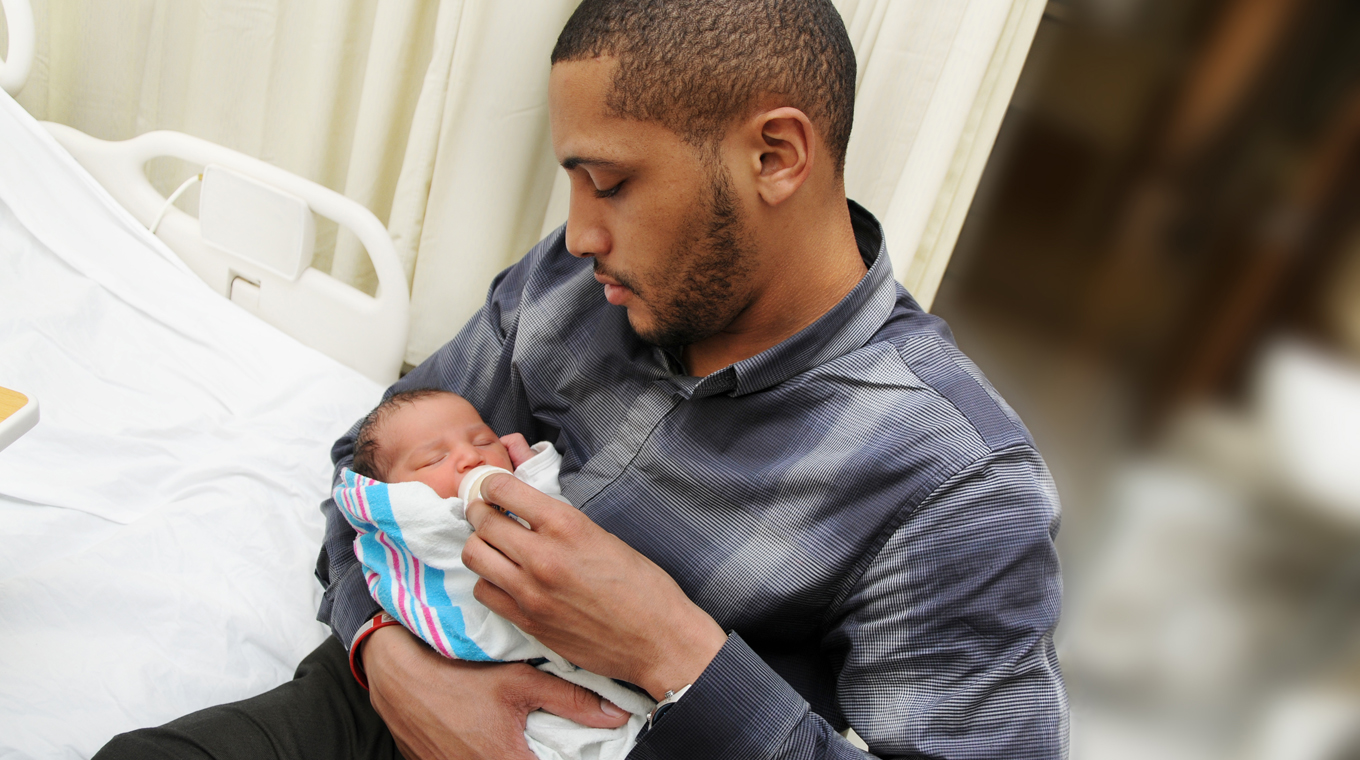
In this article
Being a parent with a newborn the first time can be a terrifying experience. After all, who decided you could keep a human alive? Do babies come with FAQs or instruction manuals? Does a person just magically know things about babies?
The 4th trimester is filled with uncertainty — and lots of questions. And one of the most important ones: How much should your new baby be eating? Here are some ways to find out if your newborn is getting enough (or too much) to eat.
Your newborn's appetite: How much should my baby eat?

Also known as the 4th trimester, the first three months immediately following birth are mainly filled with obsessing about how much your baby eats, sleeps, and excretes. With my first child, I had a chart where I recorded how long he fed on each breast as well as the details of every single diaper. By the fourth baby, I shoved a boob in his mouth if he cried and then stopped when he fell asleep. There was nary a chart in sight.
I totally overthought feeding and diapers because I felt out of control and tracking everything made me feel as if I had it together. Thankfully, whether you follow a strict schedule or you just wing it and feed on demand, there is no right or wrong way to feed a baby.
Newborns
When babies are brand new, their stomachs are the size of a cherry or about 7 ml. So how much can fit in that tiny space? “Newborns eat about 1 to 2 ounces every two to three hours,” pediatrician and spokesperson for the American Academy of Pediatrics (AAP) Dr. Steph Lee told Mom.com. “Most babies lose weight in the first week but speed past their birth weight by the second week of life.” Dr. Lee added that by two weeks of age, their feedings can increase to 2 to 3 ounces every 2 to 3 hours.
First three months
As your baby gets bigger, they will start eating more and more. By the first month, your baby may be eating 3 to 4 ounces every 3 to 4 hours, getting approximately 20 to 30 ounces a day. “As your baby grows, they will feed for longer, but less frequently,” registered dietitian nutritionist Marsha Ungchusri told Mom.com.
Around two months, most babies are consuming up to 4 to 5 ounces every 3 to 4 hours about five to six times a day. At three months, a baby is eating 4 to 6 ounces of milk six to eight times a day.
Clusterfeeding
Clusterfeeding is when babies want a lot of short feeds over a few hours, generally occurring in the late afternoons or early evenings. Often, it is to support their growth and development and is a natural way for your baby to boost your milk supply.
Teacher Marissa Gillette said her son ate so much more than she was expecting. “He was eating round the clock, all the time,” she told Mom.com. “He was nursing every two hours — if not sooner. He was constantly cluster feeding for weeks.”
Is my baby getting enough milk or formula?

Unfortunately, our breasts don’t come with convenient measure marks letting us know how much milk our infant has eaten — and newborns can’t tell us if they’re full or haven’t eaten enough. Here are a few things that might help:
Track wet and dirty diapers
One way to monitor your baby’s intake is to count wet and dirty diapers. After the first week, your child should produce at least 5 to 7 wet diapers and 3 to 4 dirty diapers a day. This will likely change over time and formula fed babies tend to have fewer bowel movements.
Check if your baby is satisfied
Another indication that your baby has had enough to eat is to check if they seem satisfied — at least for a little bit after feeding. If they are still fussy, smacking their lips or rooting, then they may still be hungry.
There’s an app for that
Hooray for technology. Now there are apps like Baby Connect, Baby Tracker to help you track breast and formula feedings.
Can I overfeed my baby?
“While this isn’t really possible to do with an exclusively breastfed baby, you can overfeed a baby who’s taking a bottle — especially if they’re sucking on the bottle for comfort,” Dr. Karen Gill told Healthline. “Follow their hunger cues, but talk to your pediatrician if you’re worried your little one may be overeating.”
When should you be concerned about your baby’s feeding?

Keep in mind that though many babies double their birth weight by 3 to 4 months, not all babies do. In general, exclusively breastfed babies put on weight slower than their formula fed counterparts, and formula fed babies gain weight faster after three months. Make sure your child’s doctor knows how you’re feeding your baby so they know to use the correct charts to make assessments about your child’s growth. For your reference, you can look at these World Health Organization (WHO) Growth Charts for Infant Boys and the WHO Growth Charts for Infant Girls.
If you don’t think your baby is eating enough or gaining enough weight, call your pediatrician. Even during the pandemic, the AAP recommends scheduling well baby visits to track your newborn’s development, discuss vaccines, and keep your child healthy and safe.







